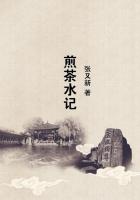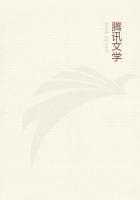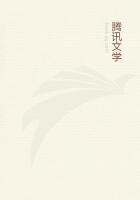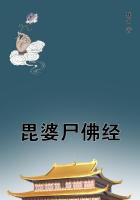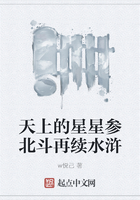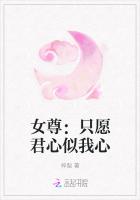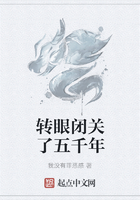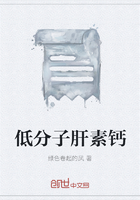Men and women and children all strive to be praised, if not by their own group, by some other group or by some generation. It is, therefore, a high achievement to introduce a new ideal of character and personality to the group. Men--whose opinion as to desirability and praiseworthiness has been the prepotent opinion--love best of all beauty in woman. Therefore, the ideal of beauty as an achievement is a leading factor in the character formation of most girls and young women. The first question girls ask about one another is, "Is she pretty?" and in their criticism of one another the personal appearance is the first and most, important subject discussed. A personal beauty ideal has little value to the character; in fact, it tends to exaggerate vanity and triviality and selfishness; it leads away from the higher aspects of reality. If you ask the majority of women which would they rather be, very beautiful or very intelligent, most will say without question (in their frank moments) that they would rather be very beautiful. Those who are attempting to introduce the ideal of intelligence as a goal to women need of course to balance it with other ideals, but if successful they will revolutionize the attitude of women toward life and change the trend of their character.
Such ideals as beauty and wealth, however, do not acquire their imperativeness unless at the same time they gratify some deep-seated group of desires or instincts. Wealth gives too many things to catalogue here, but fundamentally it gives power, and so beauty which may lead to wealth is always a source of power, although this power carries with it danger to the owner. Mankind has been praising unselfishness for thousands of years, and all men hate to be called selfish, but selfishness still rules in the lives of most of the people of the world. Chastity and continence receive the praise of the religious of the world, as well as of the ascetic-minded of all types, yet the majority of men, in theory accepting this ideal, reject it in practice. Selfishness leads to self-gratification and pleasure; chastity imposes a burden on desire, and praise and blame are in this instance not powerful enough to control mankind's acts, though powerful enough to influence them. Wherever social pressure and education influence men and women to conduct which is contrary to the gratification of fundamental desires, it causes an uneasiness, an unhappiness and discomfort upon which Graham Wallas[1] has laid great stress as the balked desire. The history of man is made up of the struggle of normal instincts, emotions and purposes against the mistaken inhibitions and prohibitions, against mistaken praise and blame, reward and punishment. Moral and ethical ideals develop institutions, and these often press too heavily upon the life and activities of those who accept them as authoritative.
[1] See his book "The Great Society" for a fine discussion of this important matter.
We have spoken as if praise and blame invariably had the same results. On the contrary, though in general they tend to bring about uniformity and conformity, people vary remarkably from one another in their reaction and the same person is not uniform in his reactions. The reaction to praise is on the whole an increased happiness and vigor, but of course it may, when undeserved, demoralize the character and lead to a foolish vanity and to inefficiency. To those whose conscience is highly developed, undeserved praise is painful in that it leads to a feeling that one is deceiving others. Speaking broadly, this is a rare reaction. Most people accept praise as their due, just as they attribute success to their merits.[1] The reaction to blame may be anger, if the blame is felt to be undeserved, and there are people of irritable ego who respond in this way to all blame or even the hint of adverse criticism. The reaction may be humiliation and lowered self-valuation, greatly deenergizing the character and lowering efficiency. There, again, though this reaction occurs in some degree to all, others are so constituted that all criticism or blame is extremely painful and needs to be tempered with praise and encouragement. Where blame is felt to be deserved, and where the character is one of striving after betterment, where the ego is neither irritable nor tender, blame is an aid to growth and efficiency. Many a man flares up under blame who "cools" down when he sees the justice of the criticism, and changes accordingly.
[1] A very striking example of this was noticeable during the Great War. American business men in general, producers, distributors, wholesalers, retailers and speculators all got "rich,"--some in extraordinary measure. Did many of them attribute this to the fact that there was a "sellers' market" caused by the conditions over which the individual business man had no control? On the contrary, the overwhelming majority quite complacently attributed the success (which later proved ephemeral) to their own ability.
Therefore, in estimating the character of any individual, one must ask into the nature of his environment, the traits and teachings of the group from which he comes and among whom he has lived. To understand any one this inquiry must be detailed and reach back into his early life. Yet not too much stress must be laid upon certain influences in regard to certain qualities. For example, the average child is not influenced greatly by immorality until near puberty, but dishonesty and bad manners strike at him from early childhood. The large group, the small group, family life, gang life influence character, but not necessarily in a direct way. They may act to develop counter-prejudices, for there is no one so bitter against alcoholism as the man whose father was a drunkard and who himself revolts against it. And there is no one so radical as he whose youth was cramped by too much conservatism.

